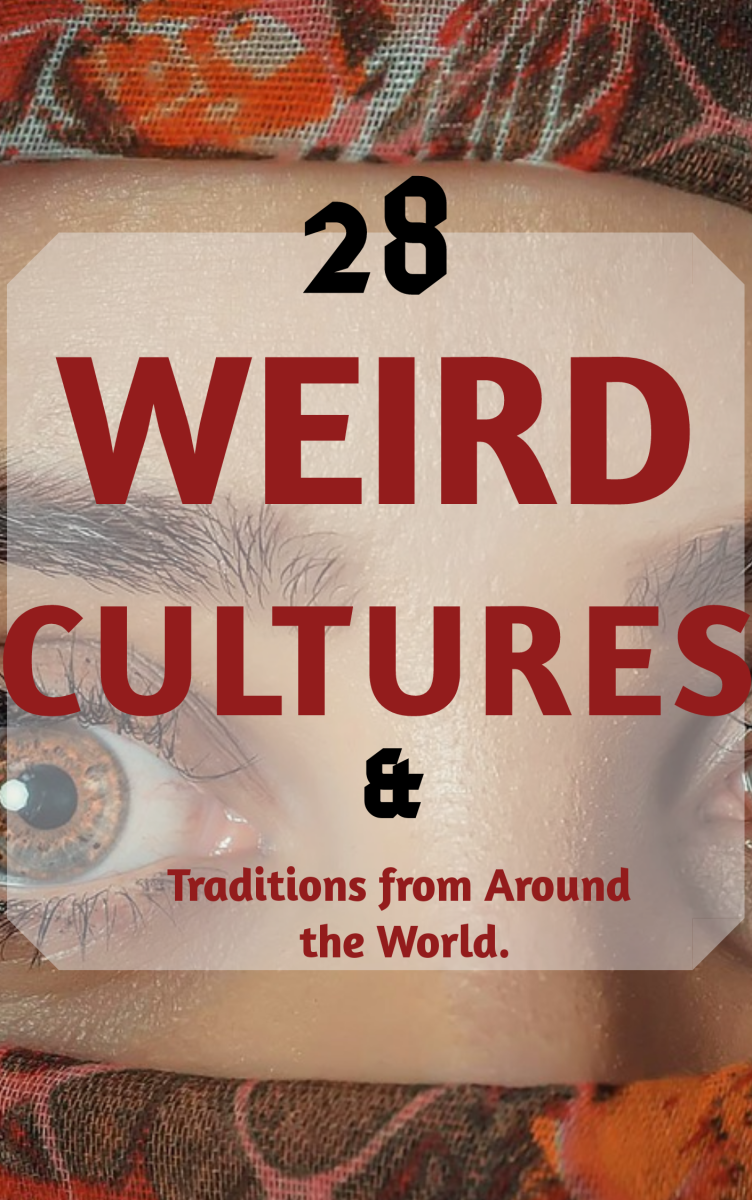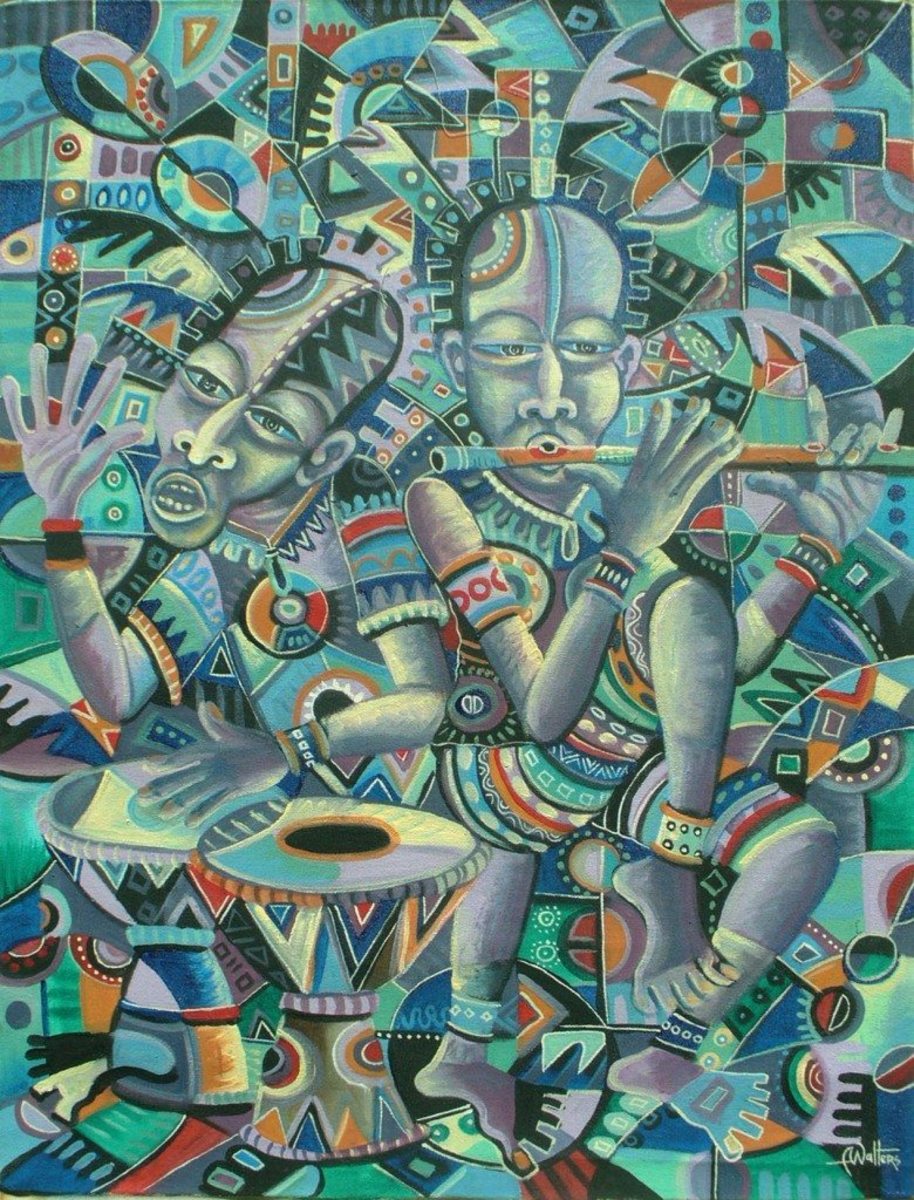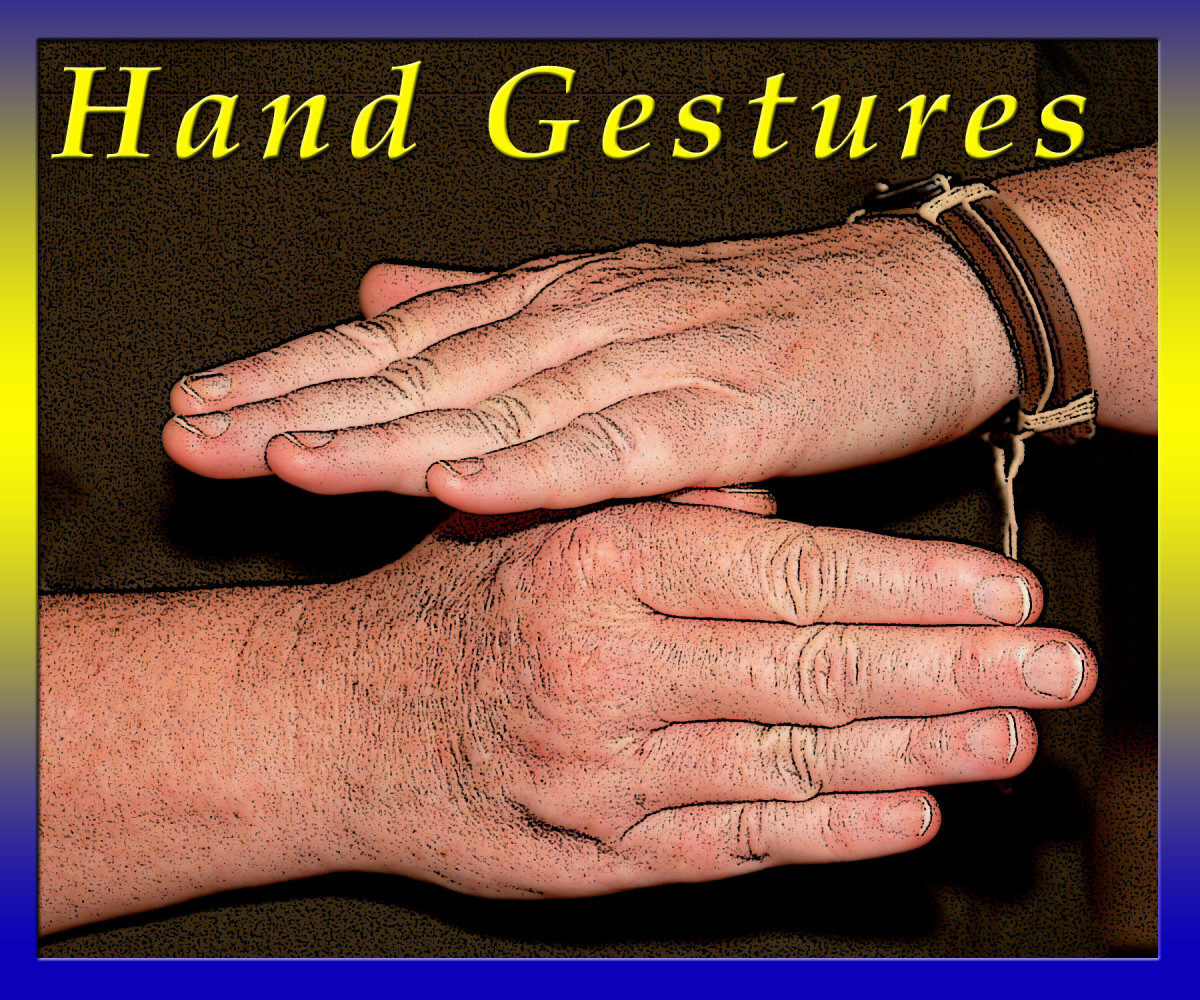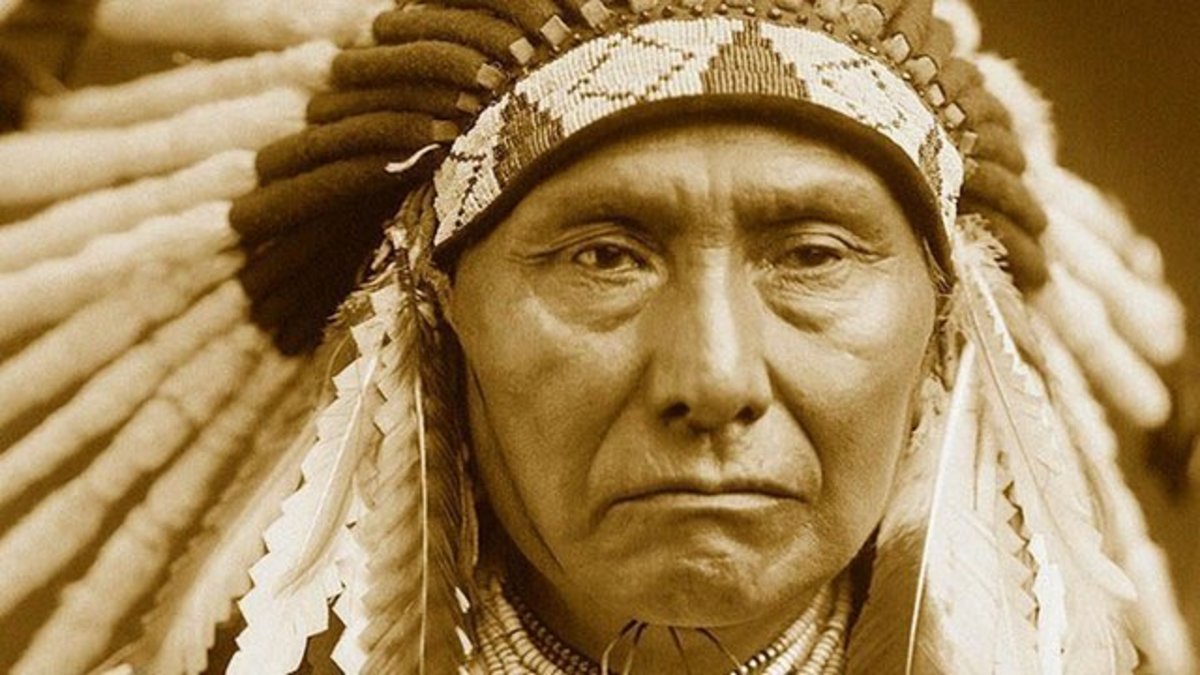The Top Five Countries for Culture
Russian culture?
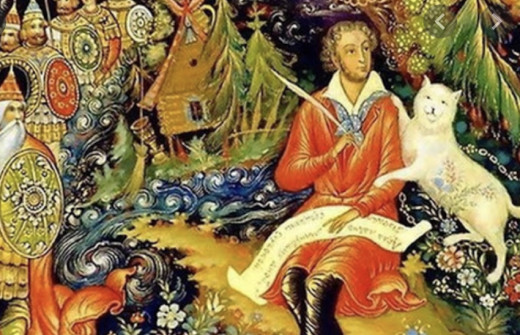
Yes and no, whether its feasting or fashion, there is much to argue about these big five
This is a personal list of the top five countries that dominate, represent and export global culture by hook, by crook, for better, for worse. Since culture is so subjective (definition isn’t too germane), this set contradicts or compliments others elsewhere1, 2 but is based on trips around the world, sampling or learning foreign languages, cuisine as well as the stuff in the media. I’ve tried to be a little contrarian reflecting personal preferences and maybe some under-stated cultures. There is also room to discuss why some obvious countries are excluded from the top five.
(1) United States: The USA has been culturally influential since the 20th century (not much before) and has caught up historically, financially and in many other ways in dominating global culture today. The top grossing films of all-time reaping hundreds of billions of dollars all come out of the USA and this nation’s wealth enables it to swallow up and regurgitate the cultures of others. The US cultural sphere embraces its land based and Atlantic neighbours such as Canada, Mexico and the UK. Justifications for the USA are simply seen in the total dominance of films like Star Wars even if you hate them and the emanation of merchandising. Indeed, films, toys and royalties probably net the US entertainment sector more than those of all other countries put together. Beyond films and toys, there are publications, food (hamburgers), politics and other influences that sweep the world. The trends and fashions of other countries including Russia and China follow the lead of the USA. Love it or loathe it, the USA sucks up global talent (Australian and British actors) and spits it out quite creatively (Netflix) and will keep reviewers and commentators yapping for many a year to come.
(2) United Kingdom: The UK has dominated global culture for about five hundred years. English is a world language of choice and though the UK‘s status has fallen recently, it punches above its weight thanks largely to a weight of history and strong creative industries. Consider Shakespeare, Milton, Shelley, Wordsworth, Keats, a bunch of painters and a reasonable collection of composers such as Handel and Elgar though in classical music, the UK does not excel. There is a huge scientific influence (in a cultural sense) – take Newton, Joules, Kelvin and Darwin. There is literature, the UK excels much of the rest of the world: Austen, the Brontes, Dickens and the above authors. The UK has collected arts and artefacts, cuisines, jewellery, fashion and countless treasures from the rest of the world including Egypt, Greece, Rome, Africa, Burma and the Indian region as well as importing human talent. Every village seems to have historical claims with the best antiquarian bookshops and lots of museums and galleries (where else to put the loot?). The British have deciphered and translated ancient tongues and done a great deal with the results – the Arabian nights, The Pali Canon and a canon of Western literature (eg., Gibbon’s summary of Roman history & a host of translated works). Britain reached a cultural peak in the Victorian age but has since had revivals in the form of The Beatles, Rolling Stones, The Who, Enid Blyton and Harry Potter. The BBC has for a long time been an exporter of British culture though the broadcaster is waning. Cinema remains strong.
(3) Italy: Italy is a recent country and didn’t exist as such until the 19th century so it represents a cultural block that incorporates Gallic and Iberian influences as well as the power of its history centred in Rome. This influence incorporates most of classical Europe since the Bronze age say from 1000BCE. The biggest influences from Italy includes the Roman Catholic church that dominates in Spanish speaking countries, South India, The Phillipines and parts of Africa and perhaps in Europe itself. We all enjoy Italian food and drink in the form of Pizza, Pasta and Italian style coffee. The treasures of Rome and Pompeii are unparalleled and priceless except perhaps in comparison to Ancient Egypt and that was dominated by the Romans from around 30BCE until 500AD. Italy has provided the world with a great deal of classical music from Vivaldi to Verdi (Opera) and other influences in paintings and art including Renaissance masters. In literature it’s supplied the world with epic poets like Virgil and Dante and a great deal of political science from Rome that has carried through (think Machiavelli). When it comes to film, think Paolo Pasolini or Franco Zeffirelli. In the sciences and arts Italy has excelled and will continue to draw intellects and tourism who will marvel at its arts, architecture, thinkers and archaeological and artistic treasures.
(4) Russia: Yes, Russia! Overlooked, an odd choice perhaps but Russia has been expanding its territory since mediaeval times and despite losing millions of square miles of territory since the 1990s, remains the world’s largest country. Russia is the de-facto source of culture for most of its satellite states (Kazakhstan etc) including a thriving pop music scene and an interesting output of films (eg., Tarkovsky). Consider the following tweet from @MoviesSilently from Feb 2020:
“If you could only watch movies made by one country (NOT USA/Hollywood) for the rest of your life, which country would it be? Russia and France were neck and neck for me but France edged them out slightly because I like more of its newer output.”
This may hint that Soviet films from just before 1990 were superior. It also shows that France should be the obvious choice here (wealthy Russians adopted French culture in the 19th c.) but Russia is still, literally much much bigger and outweighs France as a global superpower even if it struggles as a cultural one.
Can you name a single French composer? I can, but still prefer Tchaikovsky. Russia excels France in classical music, is similar in paintings (you’ve heard of Matisse and Van Gogh (he was Dutch but also intimate with France) but Russia has Iliya Repin) and probably pips France in literature. Take Tolstoy, Dostoyevsky and Pushkin.
Russia had a phase of promoting its culture (as well as Communism) in the 20th century much more actively than France through TV programmes and cartoons, translations of stories and literature, scholarships and this outreach has won it admiration around the world though you wouldn’t pick it up in mass media. Russia continues to have a vigorous pop music and movie industry with continuing influence in Europe. It’s glory days are probably still ahead, unlike with France.
(5) India: India is a modern country (it only really exists in its current boundaries since 1947 and was more like Europe before) that takes influences from the surrounding regions. Indian empires have culturally influenced most of their surroundings, especially S. and SE Asia since the 5th century AD and before. The greatest export from India, now being assimilated in much of the world is Buddhism and the Pali canon, written in both S. India and Sri Lanka (think “mindfulness”). There is also Vedic and Yoga based religions incorporating physical exercises and various kinds of Hinduism. Indian cuisine is popular the world over (usually bastardised versions) with vegetarian elements, that influence Western veganism.
Thanks to the British Empire, the Indian diaspora around the world is quite influential in business, science and medicine with English being a substantial intercultural bridge. They have a thriving movie industry though Indian arts and entertainment have only had selective impacts in the West. Bollywood does however, reach much of Asia and Africa and laps on the fringes of the UK. Its literature such as the Kama Sutra continue to influence the West through translations and Buddhist influences will never disappear in the near future as it and related teachings challenge Abrahamic faiths.
Other contenders: Outside this list, the “usual suspects” have much to claim. These include, in relative order of importance Spain, France, Sweden (Abba and Ikea?), The Austro Hungarians (Germany etc), the Netherlands, China, Brazil and many others. Many smaller countries have major claims to fame – but usually through strong links to supportive histories or Imperial associations – in other words, through linking up with more powerful countries that project those elements around the world. The Spanish and Portuguese empires of yore spread a great deal of foods and cultures around the world. It is perhaps better to describe why some countries fail to make the list.
The easiest to dismiss from this personal list is China. China has been trashing its own culture since the 1950s, what with the invasion of Tibet and the “Cultural Revolution” replacing history with secular Communism. There is only one real culture in modern China and that is the Chinese Communist Party. China boasts a 5000 years history, but strictly, their literary past only extends to about the same as the Bronze age with dateable texts from say 700 BCE from a more ancient alphabet (alphabets by themselves do not signify mature literature, they were initially devised for trade and labelling). Chinese culture has been hugely influential within a wider Asiatic “Celestial Empire” and beyond (think printing, gunpowder and silk). They were more open until about 1423 before shutting down naval explorations and isolating themselves until the first Opium War with the British. The greatest examples of Chinese culture in a modern sense include tea and cuisine, pottery, followed by martial arts. Japan, Korea and much of SE Asia were recipients of Chinese culture and values until recently.
Although China is now reaching out through infrastructure projects around the world to compensate for its historical isolationism, Chinese expansion thrives on copying and imitating anything worthy produced by opponents with little regard for copyright, human or animal rights. Singapore, Taiwan and Hong Kong indicate how Chinese culture may become influential within a more ethical framework in times to come.
Also, excluded from countries distinguished by culture are rabidly hardline religious ones that exclude other cultural influences with very little religious freedom such as Saudi Arabia and its vassal states such as parts of Indonesia and Pakistan with active blasphemy laws that persecute humanity, and contribute to the destruction of archaeology. Though countries based on religious authority have exported their culture, the consequences have neither been universally acknowledged nor accepted for the benefits which they bring. Iran and Egypt have potential but outside the remit of their religious exclusivism, taking their older histories into account.
A more realistic top five of cultural countries would probably include Spain and France. France has been rejected since it faded politically from about the time of Napoleon or if you prefer the second Empire phase that lasted until about 1870. Paris has seen more political blood spilt on its streets compared to many other European capitals and merely mouthing liberty, equality and fraternity has not made it so. Though France probably spread the culture of metric units around the world and has a fine and beautiful language with a cuisine that beats Russia (with wines and cheeses to match) and also incorporates fashion and films, the continued success of French culture is far from certain. It is certainly very influential in Africa. Spain is arguably more influential than France, but its glory days may be behind it. Spain will remain strong thanks to S. America and the Latino influence.
After much thinking I maintain the five selected countries in order of importance as USA, UK, Italy, Russia and India. I am not impartial having tried learning Danish, French and now Russian and living in the UK. What do you think?
Chinese revise their own culture


